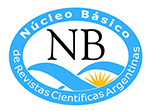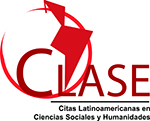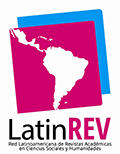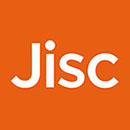Os desafios da propriedade intelectual nas expressões tradicionais dos povos indígenas
DOI:
https://doi.org/10.26422/RIPI.2025.2200.gonPalavras-chave:
propriedade intelectual, expressões tradicionais, povos indígenas, conhecimento tradicional, práticas ancestraisResumo
O conhecimento tradicional — que abrange sabedoria, experiência, habilidades e práticas desenvolvidas, mantidas e transmitidas de geração em geração — possui um valor intrínseco que transcende o meramente econômico. Este artigo examina de forma abrangente os desafios e as tendências teóricas enfrentados pelos sistemas de proteção da propriedade intelectual para a proteção das expressões tradicionais dos povos indígenas e do conhecimento tradicional em todo o mundo. Para tanto, utiliza-se de pesquisa documental sistemática que incorpora o método jurídico dogmático e o direito comparado. A questão norteadora é quais são os desafios e as tendências teóricas na proteção da propriedade intelectual das expressões tradicionais dos povos indígenas. Os resultados apresentam os desafios que limitam a proteção da propriedade intelectual das expressões tradicionais dos povos indígenas e as tendências teóricas utilizadas para sua proteção. Esta pesquisa conclui que a proteção da propriedade intelectual contém barreiras históricas inerentes aos povos indígenas, enraizadas na legislação internacional e nacional, e que surgem desafios — como as consequências do colonialismo, da globalização e do desenvolvimento industrial — que são intransponíveis além da vontade dos Estados. Concebem-se tendências teóricas e metodológicas alternativas, como a abordagem sui generis para a proteção do conhecimento tradicional e das expressões culturais tradicionais, além da cogestão do legado cultural dos povos indígenas, da autorregulamentação e do reconhecimento do direito consuetudinário. A importância de garantir a justiça social, a equidade, a preservação do patrimônio e o fortalecimento da identidade cultural indígena também é evidente.
Downloads
Referências
Acosta, D. (2023). Interacción entre conocimientos tradicionales y patentes. La Propiedad Inmaterial, (36). 5-37. https://doi.org/10.18601/16571959.n36.01
Aditya, Z. F. y Al-Fatih, S. (2023). The legal protection system of indigenous people in Southeast Asia. Legality: Jurnal Ilmiah Hukum, 31(2), 285-309. https://doi.org/10.22219/ljih.v31i2.27619
Agung, A., Hartiwiningsih, H. y Jamin, M. (2024). Strengthening the Role of Local Government in Protecting Traditional Knowledge in Jepara Regency. En International Conference On Law, Economic & Good Governance (IC-LAW 2023) (pp. 213-216). Atlantis Press. https://doi.org/10.2991/978-2-38476-218-7_34
Al Furqon, M. S. (2024) Safeguarding Heritage: Preserving Traditional Knowledge in Global Patent Law. International Journal of Current Science Research and Review, 7(6), 3556-3566. https://doi.org/10.47191/ijcsrr/V7-i6-05
Alexander, G. S., Peñalver, E. M., Singer, J. W. y Underkuffler, L. S. (2009). A Statement of Progressive Property. Cornell Law Review, 94(4), 743-744. https://surl.li/zkxjsa
Alvarado, N. E. (2016). Concepto de Propiedad intelectual colectiva de pueblos y comunidades indígenas. Cuestiones Políticas, 32(57). https://surl.li/zttuuq
Al-Zadjali, Z. (2024). The significance of art in revealing a culture’s identity and multiculturalism. Open Journal of Social Sciences, 12(1), 232-250. https://doi.org/10.4236/jss.2024.121015
Andhika, M. (2024). Safeguarding Intellectual Property in the Post-Cultural Advancement Law Era in Indonesia: Preserving Traditional Knowledge. International Journal of Current Science Research and Review, 7(6), 3546-3555. https://doi.org/10.47191/ijcsrr/V7-i6-04
Benyei, P., Skarlatidou, A., Argyriou, D., Hall, R., Theilade, I., Turreira, N., Latreche, D., Albert, A., Berger, D., Cartró, M., Chang, J., Chiaravalloti, R., Cortesi, A., Danielsen, F., Haklay, M. (2023), Challenges, strategies, and impacts of doing citizen science with marginalised and indigenous communities: reflections from project coordinators. Citizen Science: Theory and Practice, 8(1). http://doi.org/10.5334/cstp.514
Byrne, J. P. (2024). Cultural Property: “Progressive Property in Action”. Texas A&M Journal of Property Law, 10(1), 1-37. http://dx.doi.org/10.37419/jpl.v10.i1.1
Carmona, R., Reed, G., Thorsell, S., Dorough, D. S., MacDonald, J. P., Rai, T. B. y Sanago, G. A. (2023). Analysing engagement with indigenous peoples in the intergovernmental panel on climate Change’s sixth assessment report. npj Climate Action, 2(1), 29. https://doi.org/10.1038/s44168-023-00048-3
Ceballos, J. (2020). Necesidad de protección a los conocimientos tradicionales. Especial mención a las expresiones culturales tradicionales. Especial mención a las expresiones culturales tradicionales. Revista La Propiedad Inmaterial, 29(25), 25-75. https://doi.org/10.18601/16571959.n29.02
Chowdhury, J. S., Vadevelu, K., Hatta, Z. A., Al Mamun, A. y Bexci, M. S. (2024). A philosophical appraisal of indigenous knowledge and its role in Malaysia, India, and Bangladesh: Including the excluded. En Behera, S. K., Ibrahim, A. H. y Romdhani, F. (Eds.), Inclusivity and indigeneity in education for sustainable development (pp. 112-128). IGI Global. https://doi.org/10.4018/979-8-3693-2802-6.ch008
Comité de Derechos Económicos, Sociales y Culturales. (2009). Observación general Nº 21 Derecho de toda persona a participar en la vida cultural (artículo 15, párrafo 1 a), del Pacto Internacional de Derechos Económicos, Sociales y Culturas. Consejo Económico y Social. https://surl.li/dztnqa
Corte Interamericana de Derechos Humanos. (2003). Opinión Consultiva OC-18/03. Condición jurídica y derechos de los migrantes indocumentados, 17. https://surl.li/tzxnbq
Cottier, T. y Panizzon, M. (2004). Legal perspectives on traditional knowledge: The case for intellectual property protection. Journal of International Economic Law, 7(2), 371-399. https://ssrn.com/abstract=1093110
Da Silva, C., Pereira, F. y Amorim, J. P. (2024). The integration of indigenous knowledge in school: a systematic review. Compare: A Journal of Comparative and International Education, 54(7), 1210-1228. https://doi.org/10.1080/03057925.2023.2184200
De la Cruz, R. (2010). Conocimientos tradicionales, biodiversidad y derechos de propiedad intelectual-Patentes. Revista Afese, 54, 77-96. https://surl.li/wszism
De la Cruz, R., Muyuy, G., Viteri, A., Flores, G. González, J., Mirabal, J. y Guimaraez, R. (2005). Elementos para la protección sui generis de los conocimientos tradicionales colectivos e integrales desde la perspectiva indígena. https://surli.cc/hxjkzf
Fahmi, C. (2024). The application of international cultural rights in protecting Indigenous peoples’ land property in Indonesia. AlterNative: An International Journal of Indigenous Peoples, 20(1), 157-166. https://doi.org/10.1177/11771801241235261
Fernández-Llamazares, A., Lepofsky, D., Lertzman, K., Armstrong, C. G., Brondizio, E. S., Gavin, M. C. … y Vaughan, M. B. (2021). Scientists' warning to humanity on threats to indigenous and local knowledge systems. Journal of Ethnobiology, 41(2), 144-169. https://doi.org/10.2993/0278-0771-41.2.144
Ford, J. D., King, N., Galappaththi, E. K., Pearce, T., McDowell, G. y Harper, S. L. (2020). The resilience of indigenous peoples to environmental change. One Earth, 2(6), 532-543. https://doi.org/10.1016/j.oneear.2020.05.014
Fourmile, H. (2020). Who owns the past? Aborigines as captives of the archives. En Chapman, V. y Read, P. (Eds.), Terrible Hard Biscuits (pp. 16-27). Routledge. https://doi.org/10.4324/9781003137160
Garber, P. A., Estrada, A., Klain, V. y Bicca-Marques, J. C. (2024). An urgent call-to-action to protect the nonhuman primates and Indigenous Peoples of the Brazilian Amazon. American Journal of Primatology, 86(3), e23523. https://doi.org/10.1002/ajp.23523
Gebara, M. F., Ramcilovic-Suominen, S. y Schmidlehner, M. F. (2023). Indigenous Knowledge in the Amazon's Bioeconomy: Unveiling Bioepistemicide through the case of Kambo Medicine. Forest Policy and Economics, 154, 103012. https://doi.org/10.1016/j.forpol.2023.103012
Gobierno de México. (2024). Acuerdo por el que se expide el Catálogo Nacional de Pueblos y Comunidades Indígenas y Afromexicanas. Instituto Nacional de los Pueblos Indígenas. https://www.gob.mx/inpi/documentos/124406
Gobierno de México. (2025). Convocatoria al Foro de Consulta a los Pueblos Indígenas y Afromexicano sobre el Plan Nacional de Desarrollo (PND) 2025-2030. Instituto Nacional de los Pueblos Indígenas. https://surl.li/utoovq
Gómez-Sánchez, D. (2024). “Our Human Rights are Our Land”: Reconceptualising the Right to Property from an Indigenous Perspective. Reimagining Legal Pluralism in Africa: Balancing Indigenous, State, and Religious Laws, 80, 311-360. https://doi.org/10.1163/9789004696747_011
Grey, S. y Kuokkanen, R. (2020). Indigenous governance of cultural heritage: searching for alternatives to co-management. International Journal of Heritage Studies, 26(10), 919-941. https://doi.org/10.1080/13527258.2019.1703202
Haryati, D. H., Sunaryo, S., Putri, R. W. y Kasmawati. (2024) Indonesian Legal Protection of Traditional Knowledge as Community Identity. International Journal of Multicultural and Multireligious Understanding, 11(5), 303-309. https://surl.lu/xrsvdu
Houghton, J. (2024). A Tort of Misappropriation of Culture. Torts Law Journal, 29. 1-27. https://surli.cc/spdvnr
Huntley, J. y Wallis, L. A. (2023). Case Study: The Destruction of Australian Aboriginal Heritage and Its Implications for Indigenous Peoples Globally. En González Zarandona, J. A., Cunliffe, E. y Saldin, M. (Eds.), The Routledge Handbook of Heritage Destruction (pp. 384-394). Routledge. https://doi.org/10.4324/9781003131069-34
Kanyabuhinya, B. y Athanas, J. L. (2021). Protection of traditional knowledge and traditional cultural expressions in mainland Tanzania. The Eastern African Law Review, 48(2). https://surl.lu/nlqwva
Kariuki, F. (2023). Traditional Governance Institutions and the Holistic Protection of Traditional Knowledge. En Pineschi, L. (Ed.), Cultural Heritage, Sustainable Development and Human Rights (pp. 255-277). Routledge. https://doi.org/10.4324/9781003357704
Kennedy, C. M., Fariss, B., Oakleaf, J. R., Garnett, S. T., Fernández-Llamazares, A., Fa, J. E., Baruch-Mordo, S. y Kiesecker, J. (2023). Indigenous Peoples’ lands are threatened by industrial development; conversion risk assessment reveals need to support Indigenous stewardship. One Earth, 6(8), 1032-1049. https://doi.org/10.1016/j.oneear.2023.07.006
Khan, B. (2024). Intellectual property, development, and inclusiveness: A postcolonial critique. En Sappa, C. (Ed.), Research Handbook on Intellectual Property Rights and Inclusivity (pp. 48-73). Edward Elgar Publishing. https://doi.org/10.4337/9781803927268
Koto, I. (2024). The Potential Of Traditional Knowledge As An Improvement of the Welfare of Communal Communities. DE LEGA LATA: Jurnal Ilmu Hukum, 9(2), 162-169. https://surli.cc/dponds
Latulippe, N. y Klenk, N. (2020). Making room and moving over: knowledge co-production, Indigenous knowledge sovereignty and the politics of global environmental change decision-making. Current opinion in environmental sustainability, 42, 7-14. https://doi.org/10.1016/j.cosust.2019.10.010
Lehtinen, L. M. (2022). Propiedad intelectual y sostenibilidad: la protección de los conocimientos tradicionales. Cuadernos del Centro de Estudios en Diseño y Comunicación. Ensayos, (106), 185-203. https://dx.doi.org/10.18682/cdc.vi106.4040
León, S. (2018). The legal protection of traditional knowledge in the legal system of international and Ecuadorian intellectual property. Empowerment or regularization? Deusto Journal of Human Rights, (2), 49-70. https://doi.org/10.18543/djhr-2-2017pp49-70
M’sɨt No’kmaq, A., Beazley, K. F., Hum, J., Joudry, S., Papadopoulos, Pictou, S; Rabesca, J. Young, L. y Zurba, M. (2021). “Awakening the sleeping giant”: re-Indigenization principles for transforming biodiversity conservation in Canada and beyond. Facets, 6(1), 839-869. https://doi.org/10.1139/facets-2020-0083
Mc Cartney, A. M., Anderson, J., Liggins, L., Hudson, M. L., Anderson, M. Z., TeAika, B., Geary, J., Cook-Deegan, R., Patel, H.R. y Phillippy, A. M. (2022). Balancing openness with Indigenous data sovereignty: An opportunity to leave no one behind in the journey to sequence all of life. Proceedings of the National Academy of Sciences, 119(4), e2115860119. https://doi.org/10.1073/pnas.2115860119
Meyer, C. y Naicker, K. (2023). Collective intellectual property of Indigenous peoples and local communities: exploring power asymmetries in the rooibos geographical indication and industry-wide benefit-sharing agreement. Research Policy, 52(9), 104851. https://doi.org/10.1016/j.respol.2023.104851
Mugabe, J. (1999). Intellectual Property Protection, and Traditional Knowledge: An exploration in international policy discourse. ACTS Press. https://surl.gd/huevmm
Mulalap, C. Y., Frere, T., Huffer, E., Hviding, E., Paul, K., Smith, A. y Vierros, M. K. (2020). Traditional knowledge and the BBNJ instrument. Marine policy, 122, 104103. https://doi.org/10.1016/j.marpol.2020.104103
Muñoz, T. M., Giraldo, J. y López, M. D. S. (2019). Mecanismos de protección de los conocimientos tradicionales: el caso de Colombia. Revista Derecho del Estado, (43), 235-264. https://doi.org/10.18601/01229893.n43.09
Nakitare, J., Otike, F. y Mureithi, L. (2024). Harnessing the economic value of indigenous knowledge in Kenya: a qualitative review of the legal framework. Global Knowledge, Memory and Communication, Vol. ahead-of-print No. ahead-of-print. https://doi.org/10.1108/GKMC-09-2023-0324
Nepal, T. K. (2023). Traditional ecological knowledge (TEK) and its importance in the Himalayan Kingdom of Bhutan. En Chan Rai, S. y Mishra, P. K. (Eds.), Traditional Ecological Knowledge of Resource Management in Asia (pp. 317-332). Cham: Springer International Publishing. https://surl.li/ywsxac
Nulkar, G. (2024). Traditional Knowledge and Sustainable Livelihoods. En Nulkar, G. (Ed.), The Economics of Sustainable Development: A Machine-generated Literature Overview (pp. 129-176). Springer Nature Singapore. https://doi.org/10.1007/978-981-99-7379-8_4
Organización de Estados Americanos. (1978). Convención Americana sobre Derechos Humanos. https://surl.li/xtknva
Organización Mundial de la Propiedad Intelectual. (1883). Convenio de París para la Protección de la Propiedad Industrial. https://surl.li/bjqhhn
Organización Mundial de la Propiedad Intelectual. (1886). Convenio de Berna para la Protección de las Obras Literarias y Artísticas. https://surl.li/hlrhox
Organización Mundial de la Propiedad Intelectual. (11 de diciembre de 2019). Un tribunal australiano pone freno a la venta de souvenirs aborígenes falsificados. Revista de la OMPI. https://surli.cc/lazgel
Organización Mundial de la Propiedad Intelectual. (18 de diciembre de 2020). La ética en la propiedad intelectual y cultural de las comunidades indígenas: Australia establece nuevos protocolos. Revista de la OMPI. https://surli.cc/pqmfsm
Organización Mundial de la Propiedad Intelectual. (2024). Conocimientos tradicionales. https://surl.lu/hkwdwc
Parlamento Europeo. (1998). Directiva del Consejo N° 98/44/CE, de 6 de julio de 1998. https://surl.gd/rpaeux
Penteado, A. y Prasad, S. (2024). Indigenous Peoples, Intellectual Property and Sustainability. En Penteado, A., Chakrabarty, S. P. y Shaikh, O. H. (Eds.,), Traditional Knowledge and Climate Change: An Environmental Impact on Landscape and Communities (pp. 269-281). Springer Nature Singapore. http://dx.doi.org/10.1007/978-981-99-8830-3_12
Phillips, F. K. (2016). Intellectual property rights in traditional knowledge: enabler of sustainable development. Utrecht Journal of International and European Law, 32(1). https://doi.org/10.5334/ujiel.283
Prasad, S. y Penteado, A. (2024). Towards a Better Access and Benefit Sharing Mechanism to Protect Traditional Knowledge in India: A Platter in the Offering. En Penteado, A., Chakrabarty, S. P. y Shaikh, O. H. (Eds.), Traditional Knowledge and Climate Change: An Environmental Impact on Landscape and Communities (pp. 313-329). Springer Nature Singapore. http://dx.doi.org/10.1007/978-981-99-8830-3_14
Prieto, D. (2024). Colonialismo tóxico: territorios en sacrificio y crisis ecológica por la contaminación. Raízes: Revista de Ciências Sociais e Econômicas, 44(2), 191-209. https://doi.org/10.37370/raizes.2024.v44.892
Rai, S. C. y Mishra, P. K. (2023). Traditional ecological knowledge and resource management: a conceptual framework. En Chan Rai, S. y Mishra, P. K. (Eds.), Traditional ecological knowledge of resource management in Asia (pp. 1-11). Springer International Publishing. http://dx.doi.org/10.1007/978-3-031-16840-6_1
Rakeiora, T. y Hall, C. M. (2024). Understanding indigenous knowledge in contemporary consumption: a framework for indigenous market research knowledge, philosophy, and practice from aotearoa. Knowledge, 4(2), 321-330. https://doi.org/10.3390/knowledge4020018
Rasmussen, J. B. (2023). Advancing environmental justice through the integration of traditional ecological knowledge into environmental policy. Challenges, 14(1), 1-11. https://doi.org/10.3390/challe14010006
Redvers, N., Aubrey, P., Celidwen, Y. y Hill, K. (2023). Indigenous Peoples: Traditional knowledges, climate change, and health. PLOS Glob Public Health, 3(10), e0002474. https://doi.org/10.1371/journal.pgph.0002474
Robinson, D. F. y Raven, M. (2020). Recognising Indigenous customary law of totemic plant species: Challenges and pathways. The Geographical Journal, 186(1), 31-44. https://doi.org/10.1111/geoj.12320
Robinson, J. M., Gellie, N., MacCarthy, D., Mills, J. G., O'Donnell, K. y Redvers, N. (2021). Traditional ecological knowledge in restoration ecology: a call to listen deeply, to engage with, and respect Indigenous voices. Restoration Ecology, 29(4), e13381. https://doi.org/10.1111/rec.13381
Rowlands, M. (2020). Cultural rights and wrongs: Uses of the concept of property. En Verdery, K. y Humphrey, C. (Eds.), Property in Question (pp. 207-226). Routledge. https://doi.org/10.4324/9781003086451
Sakapaji, S. C., García Molinos, J., Parilova, V., Gavrilyeva, T. y Yakovleva, N. (2024). Navigating legal and regulatory frameworks to achieve the resilience and sustainability of indigenous socioecological systems. Resources, 13(4), 56, pp. 1-24. https://doi.org/10.3390/resources13040056
Salazar, D. O. (2011). Propiedad intelectual y conocimientos tradicionales indígenas: bases para un proyecto de decisión andina. Editorial Académica Española.
Salazar. D. (2004). Conocimientos tradicionales de los pueblos indígenas. Revista Propiedad Intelectual, 4(6-7), 283-311. https://surl.li/senoow
Salinding, M. B. y Irawan, A. (2024). Legal Protection of Traditional Knowledge of Indigenous Peoples in Obtaining Economic Benefits, Human Rights Perspertive. Mahadi: Indonesia Journal of Law, 3(2), 122-128. https://surl.li/eakemf
Sandoval, E. (2021). Sentipensar intercultural y metodología para la sustentabilidad de desarrollos otros. Ediciones de la Universidad Autónoma Indígena de México. https://secuencia.mora.edu.mx/Secuencia/article/view/2311
Scovazzi, T. (2024). Sustainable Development and Intangible Cultural Heritage. En Pineschi, L. (Ed.), Cultural Heritage, Sustainable Development and Human Rights (pp. 213-232). Routledge. https://doi.org/10.1007/978-3-319-08527-2_4
Secretaria General de la Organización de Naciones Unidas. (2021). Decenio de las Naciones Unidas para la Restauración de los Ecosistemas 2021-2030. https://surl.li/vmyqyg
Secretaria General de la Organización de Naciones Unidas. (1976). Pacto Internacional de Derechos Económicos, Sociales y Culturales. https://surl.li/ystrxn
Secretaria General de la Organización de Naciones Unidas. (1992). Convenio sobre la Diversidad Biológica. https://www.cbd.int/convention/text
Secretaria General de la Organización de Naciones Unidas. (2007). Declaración de las Naciones Unidas sobre los Derechos de los Pueblos Indígenas. https://surl.li/qpugmu
Secretaria General del Convenio sobre la Diversidad Biológica. (2010). Protocolo de Nagoya sobre acceso a los recursos genéticos y participación justa y equitativa en los beneficios que se deriven de su utilización al Convenio Sobre la Diversidad Biológica. https://surl.li/fnmdrb
Sierra, A. (2022). Aciertos y defectos de la protección jurídica de los conocimientos tradicionales en el Perú. IUS ET VERITAS, (65), 215-232. https://doi.org/10.18800/iusetveritas.202202.014
Smith, C., Burke, H. y Ward, G. K. (2020). Globalisation and indigenous peoples: Threat or empowerment? En Indigenous cultures in an interconnected world (pp. xviii-24). Routledge. http://dx.doi.org/10.4324/9781003116097-1
Sugeng, S., Aidy, Romasindah, W. y Cardenas, A. (2024). Intellectual Property Rights in Agriculture: Plant Variety Protection and Food Security. Audito Comparative Law Journal, 5(2), 66-91. https://doi.org/10.22219/aclj.v5i2.33097
Thiruthy, N. y Thaninayagam, K. (2024). Perception analysis of TCE holders about ownership, possession, use, misuse and misappropriation in India. Journal of Intellectual Property Law and Practice, 19(11), 821-833. https://surl.li/kpvwrw
UNESCO. (2003). Convención para la salvaguardia del patrimonio cultural inmaterial. https://surl.li/znnlhn
Villa, C., Mascarenhas, F. y Lopes, L. (2023). The Brazilian Atlantic Forest genetic resources in patents and the challenges to control the economic use of biodiversity. World Patent Information, 74, 102218. https://doi.org/10.1016/j.wpi.2023.102218
Waelde, C. (2024). Private Law-Making, Self-Regulation and Heritage. En Lixinski, L. y Morisset, L. K. (Eds.), The Routledge Handbook of Heritage and the Law (pp. 428-441). Routledge. https://doi.org/10.4324/9781003149392
Williamson, B., Provost, S. y Price, C. (2023). Operationalising Indigenous data sovereignty in environmental research and governance. Environment and planning F, 2(1-2), 281-304. https://doi.org/10.1177/26349825221125496
Zhang, Y., Zhang, H., Ullah, M., Nazir, S. y Chun, Z. (2024). Intellectual property protection in the oil, gold sectors and mineral resources rent on indigenous populations: Preserving innovation and value. Resources Policy, 95, 105090. https://doi.org/10.1016/j.resourpol.2024.105090
Downloads
Publicado
Edição
Seção
Licença
Esta licencia permite copiar, distribuir, exhibir y representar la obra siempre y cuando se reconozca la autoría y se cite la obra de la forma adecuada. No se permite el uso comercial de la obra original ni la generación de obras derivadas.
Los autores garantizan a la Revista Iberoamericana de la Propiedad Intelectual el derecho de ser la primera publicación del trabajo.










































